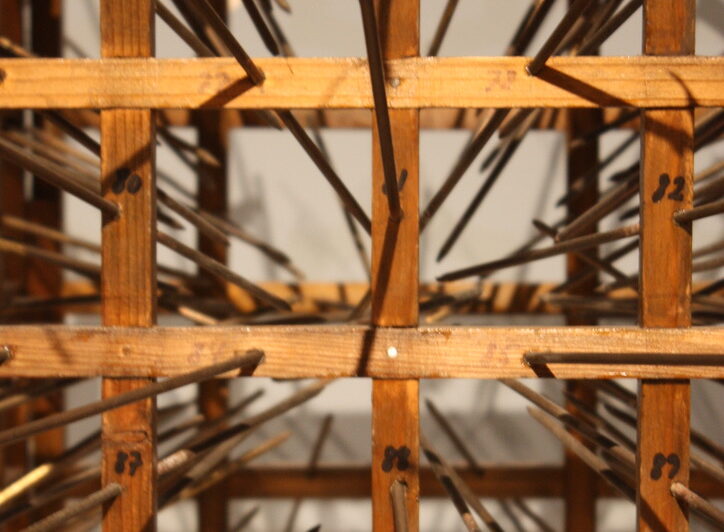A feature is what I call the “I had no choice yet cannot ignore for ever health-conditions” I have.
“You are using the restroom quite a lot, huh?” A boy stated, running passed me with what he probably felt like the speed of lightning. I responded with a slight indifference. Because, how do you explain the aftermath of an illness terrorising my body and the symptoms still lingering to an 8 year old boy with a concentration of an ant?
Why can’t I walk?
Two months ago, I went to the doctor with what I thought was a simple concussion. My brother and I had been working on his terrace and I’d lost control of one of the boards. I did have a mild concussion but unfortunately, it was only the beginning.
At this point, I had noticed I was walking slowly and had some issue with my bladder but didn’t think much of it and forgot to mention it the first time around. So the next day, after a night of little sleep due to a bladder that wanted relief but couldn’t (resulting in visits to the lue every half/whole hour) it was time for another visit to the doctor. This time a slight suspicion of cystitis.
It wasn’t. Instead, the nurse with slight horror in her face stated that I had diabetes type 1 and a very high level of sugar in my urine. I calmly responded that I already knew about my diabetes (diagnosed in 2017), was and am in treatment – and by the way, the level she was talking about was actually lower than last time they measured my sugar-levels. I knew it wasn’t my diabetes – because I know my body. I know my Diabetes-badass-body. She was convinced that it was my diabetes and even consulted with a doctor. They sent me home with an allround treatment for cystitis just in case and sent my urine for further testing.
That afternoon, crashing at my mothers. My bladder still closed up like some stores on a Sunday. I just couldn’t be in my body and we went to A&E. They relieved me from 1,5 l urine and admitted me then and there.
Please be an infection. Please.
That’s when the testing started. At this point, I had no bladder-function (now hooked on a catheter – I called her Ulla) and my legs just did not want to do what I wanted and felt numb. Despite having no idea at this point, what was going on, testing me for a 100+ infections, they began an overall treatment to see if they could make a wild guess.
I remember my mom cheer for every infection I did not have and while I understood her point of view, I got more and more depressed, because I knew what that ment. As possible infections I could be treated for and walk out of the hospital, go back to my life and live as usual was running out, the closer we got to the auto-immune illness playground yet again. A place you do not leave, ever, but learn how to play the best way possible.
And once again since Diabetes anno 2017 yet another permanent playground was opened to me: Anti-MOG.
Anti-MOG – my new feature
Scleroses is when the inmune system by mistake attacks the nerve cells in the central nerve system, specifically the myelin acting as airbags protecting the nerves. This makes it highly problematic for the brain to send signals to the body – for instance, it needs to find a new ways to tell the legs to walk for instance. Anti-MOG is not really scleroses, but a cousin so to speak. It’s when the imune-systems by mistake attacks a protein in the myelin called Myelin Oligodendrocyt Glycoprotein (MOG).
And, this is how far I go in my Anti-MOG/Scleroses education. We’ll have to see what’s up for next semester. I think there’s a lot of training-schemes on the next semester-plan, but I’ll keep you up-to-date.
Once the diagnosis was established, the first round of treatment went smooth sailing. My body came back to normal and I had hoped for this attack to be the only one I would experience. I went back to work. I started working out. I bought a bike-helmet, because I had promised God to buy one, if I ever got out of the hospital. I was a little bit slow and tired but knew I had to get back to life. That’s how I function.
Ding. Second round
A week later, symptoms started to flare up again. I woke up one morning and simply couldn’t walk. My sister and her fiancé came and drove me to the hospital and as I tried to walk into the consultation-room, I lost balance and almost fell if it wasn’t for the doctor catching me.
This time around, the treatment I was given the first time around did not help as well as they wanted, and I was transferred to another hospital with the possibility to treat me with plasmapheresis. Now, if you do not know, you get some tubes operated into the blood vessel in order to drag out the white blood-cells and replace them with medicine.
I got to admit having fun finding names for this one. To the people I knew could take a joke, I called the tube my penis. Fittingly, as the “sock” they put on them made them look perfect for the part as Penis. My cousin laughingly said, that I was giving the world the finger. And so officially, I called them “Finn the Finger”. When I finally got them removed (they were actually kind of heavy, annoyingly in the way all the time and itchy) I was pretty glad I did not know how big they actually were. It might have looked like a penis growing on the surface, but it was a humongous whale underneath. Today, I have a slight mark on my neck. That’s it. And pictures – of course.
The Plasmapheresis was an interesting treatment. I had some issues during, but it helped me get some of my functions back – and also the memory and embarrassment of having to use a pelvis on multiple occasions during the treatments due to the gastrointestinal symptoms I had from the Anti-MOG attack they were treating me for combined with blood-sugars I could not control due to the medicine I was taking. It was just an unfortunate, irritating cocktail leading straight to my bladder (I call her Bellatrix le Strange (Harry Potter)). Bellatrix had a party on these days. I’m just saying.
I was given 5 treatments and had “rest-days” in between. After the 3rd treatment I was so well-functioning, that they sent me home to stay, having to come back on the last remaining “treatment-days”. And while that was a challenge for me in my new life and gave me another kind of worries, it was a blessing in disguise. I got to crash my mothers couch and get some normality.
Hospital-life – getting back to life
Hospital-life did not make my state of mind better and combined with some busy nurses that seemed to think I did not need any help, I felt more of an obstacle than someone considered ill enough to be there. I was in a psychological messy state and had difficulties finding my voice, speaking up, asking the million questions I had and just finding out what options I had. Not many of the nurses seemed to pick up on it and didn’t offer me the help I actually needed or just gave me a chance to actually function the best way possible. Simple things could have helped.
I had at this point been to several hospitals already and met a lot of health-care professionals helping me getting answers. It was honestly, only this last place I really experienced the challenges the hospital system are having in Denmark and the lack of personnel. It seemed as if the other places, despite being just as busy, had found a way through commitment, souls of fire for their fields and fellowship. Only a handful of people I met had that same fire at this last place.
Instead one nurse came in one morning and declared that she did not have time for me. Another one completely overheard me when I asked for help making it pretty evident that she had not taken the time to read up on my case and what I came from. To them, I was normally functioning. They had not seen me laying in bed with almost no moving body-function from the chest down. A handful of people working there was a complete different experience. They went out of their way to help me, gave me advice on how to make the treatments better and when I finally found my voice, answered all my questions.
This is not my body yet
When I came back from treatments, the doctors and nurses kept asking me “How do you feel?”, “Did it work?” – but how do you answer such questions when the body I return with does not feel like the body I once had? I wanted to be positive. I wanted to say – yeah, It’s really working. Now I can do this. See? The treatments did work but slow. The next day of a treatment I’d be overwhelmed with tiredness but have more energy in my legs and they wouldn’t be as heavy.
At this point I could walk, yet my feet were feeling swollen and as if they were sleeping. The “sleepy-ness” would move up my legs if I moved around too much. The first time this happen I became so scared and started crying impulsively sitting around the table. My legs sometimes felt heavy. It prickled in my hands. I’d get tired in my eyes if I pushed the limits of my doings too much.
Finally. Answers!
Alongside these treatments, I was transferred to Sclerose-klinikken in Glostrup. Here, I was finally offered some explanations I could understand, answers to the many questions I had and a treatment plan. And this is where I am today – waiting for my first round of Rituximab in about 9 days (who’s counting…) while running to the bathroom all the time because Bellatrix has decided to open the gates in an uncontrollable maner. But at least some things are starting to work right?
The End? To be continued…
This is the story of an auto-immune illness. I wish I could conclude with a “The End”. But a lot of emotions, feelings and life-questions came to the surface and if I had to cover that in this segment, you’d never be done. I don’t know if you can use my story. I know I needed to read other people’s stories – just knowing that they had a life after the diagnosis was something I could hold on to. And if this can be that story to you, I’m glad. But it is not why I mainly write this.
I want to keep something to remember what actually happened. Life-events tend to become blurry so to me, this is the more actual story. How I felt and how I delt with (and keep dealing with) the feelings, the emotions, the anxiety, the scare, the grief, peoples respons I want to cover in different ways.
So, I guess this is a “to be continued … and now I’ll let Bellatrix win the “gate-opening” contest this time around.


